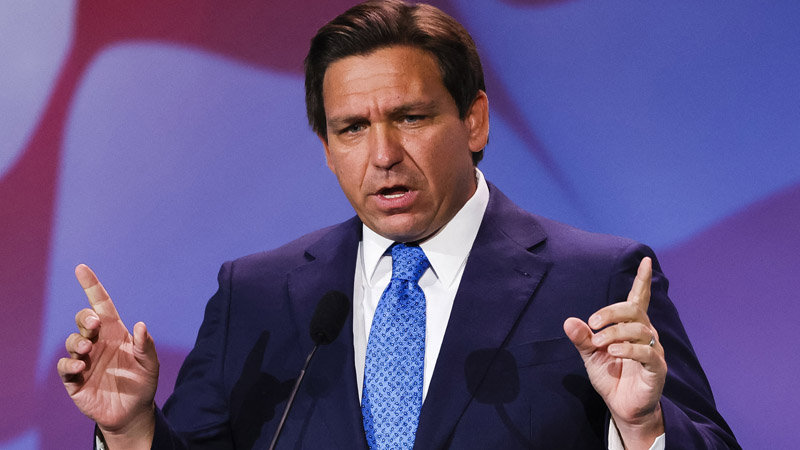A federal court has issued an order preventing Florida state officials, including Gov. Ron DeSantis’ health secretary Joseph Ladapo, from threatening television stations that air ads supporting Amendment 4, a constitutional ballot initiative aimed at repealing Florida’s near-total abortion ban. The ruling came after the state used an obscure law in an attempt to intimidate stations from broadcasting the ads, according to constitutional attorney Adam Steinbaugh.
The controversy began when DeSantis’ administration sent letters to TV stations warning that their employees could face prosecution for airing the ads, citing a rarely used “sanitary nuisance” law. This law, originally designed to address public health hazards like improperly sealed septic tanks, was being applied to argue that the ads might mislead women who are eligible for abortion care under health exceptions, potentially discouraging them from seeking medical treatment.
However, the court rejected the state’s argument, emphasizing that the ads are protected by the First Amendment’s right to free speech. In the ruling, the court pointedly criticized the state’s actions, stating, “While Defendant Ladapo refuses to even agree with this simple fact, Plaintiff’s political advertisement is political speech — speech at the core of the First Amendment.” The court further noted that the government cannot justify its indirect censorship of political speech by labeling it as “false.”
The ruling drew on the precedent set by the U.S. Supreme Court in the 1945 case Thomas v. Collins, which established that the First Amendment is designed to prevent public authorities from controlling or regulating the press, speech, and religion. “The very purpose of the First Amendment is to foreclose public authority from assuming a guardianship of the public mind,” the ruling quoted.
In a striking statement, the court underscored its message to the state, saying, “To keep it simple for the State of Florida: it’s the First Amendment, stupid.”
The decision followed a tense session of oral arguments, during which U.S. District Judge Mark Walker appeared visibly frustrated with the state’s defense of its prosecution threats against the TV stations. Throughout the hearing, Walker questioned the legitimacy of the state’s legal tactics, making it clear that the state’s approach conflicted with constitutional protections.
This ruling is a major victory for advocates of Amendment 4, which seeks to overturn Florida’s restrictive abortion laws, and serves as a rebuke to the DeSantis administration’s efforts to suppress political speech related to the issue. By blocking the threats against broadcasters, the court reaffirmed the importance of free speech in the political process, particularly around contentious issues like abortion rights.
With the decision now in place, TV stations can continue airing ads in support of the ballot initiative without fear of legal retaliation from state officials, ensuring that voters will be informed as the debate over Amendment 4 unfolds.

